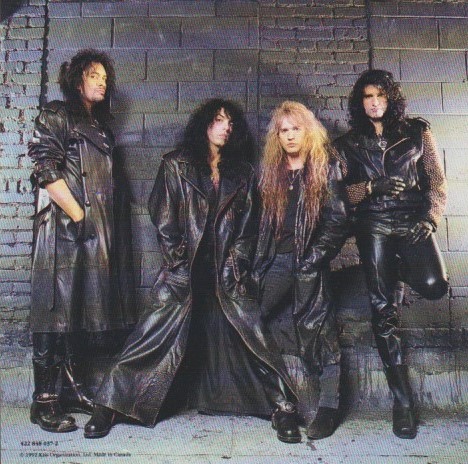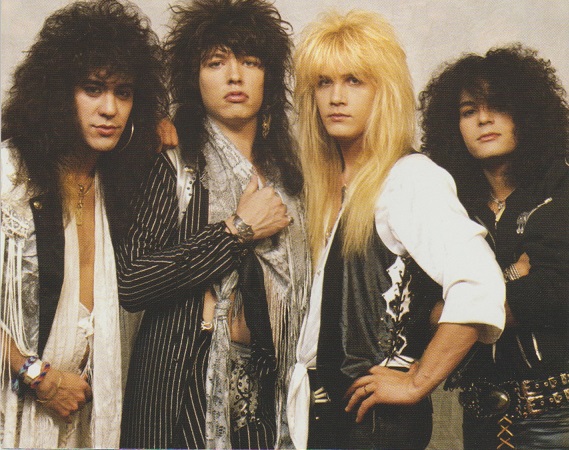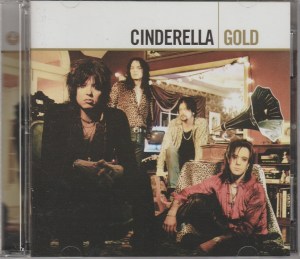Previous Reading:
Record Store Tales #600: The Vault
Disk 1 Review
Disk 2 Review
Disk 3 Review
Disk 4 Review
Another “Holy Grail” for Kiss collectors: the famous (or infamous) Bob Dylan writing sessions. Let’s take a dive! For those keeping score at home, this CD contains tracks 61-75 in the Vault box set.
 GENE SIMMONS – The Vault – Disk 5 (2018 Rhino)
GENE SIMMONS – The Vault – Disk 5 (2018 Rhino)
With these Vault songs, sometimes the liner notes can be revealing, and sometimes less so. The notes for one of Gene’s prettiest songs, “See You Tonite” answers an age-old question: “What exactly is the “it” that Gene is singing about? “I know it’s around.” “I’ll see you get it tonight”. “It” means nothing. It’s whatever you want it to mean. Inspired by the Beatles, Gene felt like the lyrics didn’t have to be anything specific. Who is the “Walrus?” That kind of idea. This old demo is more Beatles-y than his solo album version. The tune dates back to the Wicked Lester days and was written in half an hour. Unfortunately the notes don’t offer much information about who is playing on the track or when it was recorded. The guitar work is very Byrds/Beatles. Time to get Julian Gill’s Vault book. 4/5
According to a scribble in the book, 1976’s “You’re My Reason #2” was previously released on the Japanese version of Asshole as a bonus track. Gene plays everything on the demo: bass, acoustic and electric guitars, and piano. It’s a very pretty song and Gene is proud of it. He sounds disappointed in the liner notes that Kiss didn’t find it appropriate for the band. It could have been something. 3.5/5
“Always Near You” was, of course, completed on Gene’s solo album with an additional title, “Nowhere to Hide”, tacked on. This early demo is just Gene on guitar, piano and drums. No bass! Like “See You Tonite”, it is very Beatles-y. It needed all the drama that the album version has with all that pompousness of the full arrangement. This is a pretty good rough outline. 3/5
When Gene said that he arranged this box set according to “feel”, he was not lying. “Once More Chance” is another very Beatles-esque song that wound up on Gene’s solo album. (The Beatles influence is repeatedly acknowledged in the notes.) This song ended up as “Mr. Make Believe”, yet another pretty Gene ballad that needed more orchestration. The album version is impeccable, but this earlier version is about 75% of the way there. There’s a nice section of Gene harmonizing with himself that gets lost on the album, so it has its own appeal. It’s a little more electric. 4/5
“Now That You’re Gone #2 Synth” originated in the late 1970s, and working with Bob Kulick. This song should be familiar to those who own the Asshole album. It’s remarkable similar. Unfortunately it never was one of Gene’s best songs, though he seems to like it a lot. It has a lot of personal meaning, regarding his absentee father. This is not the last we’ll hear of “Now That You’re Gone” in this Vault. 2/5
“You’re My Reason for Living Synth” is a version of the song with Silent Rage. Gene changed a verse and some chords, and the synth is a haunting touch. In this guise, it reminds of some of David Coverdale’s keyboard-oriented ballads. It gets heavier as it goes. Each version of this song has different flavours. That’s what makes this box an interesting listen, for those interested in the art of songwriting and arranging. 3.5/5
According to Gene, “Dreamer” was written into 1975 and eventually morphed into multiple songs. It’s not particularly good. It’s based on acoustic, with some piano highlights. Whatever came from this song was doubtless better. 1/5
And now, we get to the Bob Dylan music. “Na, Na, Na, Na” is an early version of “Waiting For the Morning Light”, as Gene played around with the chords that Dylan wrote. The singing is improvised, but the song was starting to come together. This version might better highlight how nice the music actually is. Gene sings some nice falsetto. It’s a very well recorded demo with some really nice organ coming through loud and clear. It just needed words. 3/5
“Mr. Make Believe” is an electric demo of the song, recorded on a day off in 1977. The verse melody is completely different, and uninspiring. It’s crazy that a great song came from this crap. It’s meandering sub-Beatles pablum until the chorus comes in. 2/5
Not content and continuing to beat a dead horse, “Now That You’re Gone #3” was recorded with Tommy Thayer and Kevin Valentine, which might place it in the Psycho-Circus writing sessions. It’s more grungey but still doesn’t really go anywhere. It’s a completely different delivery, but the problem is the song might not be good enough. 2.5/5
Of course, we can’t be complete without the original “Now That You’re Gone #1” demo, recorded in 2000 with (I kid you not) some guys he heard on the radio doing a “Garth Brooks does Kiss” spoof. Though Gene re-wrote some lyrics to be more personal, the horse is dead. How can a demo recorded in 2000 sound so crappy? 2/5
Gene reveals that “You’re My Reason for Living 4 Track” eventually evolved into “Journey of 1,000 Years” on Psycho-Circus, and other songs as well. I would never have picked up on that. This is a very basic demo without drums, just a programmed beat. It’s underwhelming for that reason. There are some cool twangy sounds on the chorus, but otherwise there are better versions of this song. 2.5/5
“We Are One” has always been one of the more unusual songs on Psycho-Circus. This is a Silent Rage demo that Kiss (or, Simmons Stanley Thayer & Valentine) re-recorded in the studio. This version has folksy 10,000 Maniacs verses and a bombastic Kiss chorus. Gene cites Lennon as an influence and you can hear that. Pretty decent demo. The words aren’t all the way there yet. “We Are One” was released as a Kiss single in 1998. 3/5
“Everybody Wants Somebody” is another rendition of “Na, Na, Na, Na” and what would become “Waiting for the Morning Light”. This was recorded with Tommy Thayer. It is largely its own song, but you can hear some of the same guitar and vocal melody in its construction. The lyrics are improvised. We’re still not there yet; the song still needed a lot more work. 3/5
The 15 minute “Bob Dylan and Gene Simmons Writing Session” is the holy grail. Imagine being a fly on the wall as the two talk and jam. Bob advises Gene not to go “too outside” the Kiss thing with this session. This is just a snippet of a six hour session. Bob is inquisitive, asking Gene about how he writes songs. Gene reciprocates and wants to know how Bob works. I repeat: You will get to hear, in Bob Dylan’s own words, how he writes songs. Bob’s picking is delectable, and he coaches Gene a bit with trying to find a lyric. Eventually, Bob wrings out the chords that Gene responds to, and a song is begun. Because this 15 minute track is mostly spoken word, I will not give is a grade, and instead we will calculate the disc average with only the previous 14 songs. Rest assured, this is a fasctinating treasure for music geeks.
Average score by song: 2.78/5 stars
Disk 5 Track length and songwriters (from Wikipedia)
1. See You Tonite (2:31) Simmons
2. You’re My Reason #2 (3:28) Simmons
3. Always Near You (2:32) Simmons
4. One More Chance (3:14) Simmons
5. Now That You’re Gone #2 Synth (3:38) Simmons / Kulick
6. You’re My Reason for Living Synth (4:20) Simmons
7. Dreamer (3:04) Simmons
8. Na, Na, Na, Na (2:48) Dylan / Simmons
9. Mr. Make Believe (2:28) Simmons
10. Now That You’re Gone #3 (3:54) Simmons / Kulick
11. Now That You’re Gone #1 (3:51) Simmons / Kulick
12. You’re My Reason for Living 4 Track (3:47) Simmons
13. We Are One (3:03) Simmons
14. Everybody Wants Somebody (3:28) Dylan / Simmons
15. Bob Dylan and Gene Simmons Writing Session (15:48)

















 KISS – Psycho Circus (1998)
KISS – Psycho Circus (1998)






